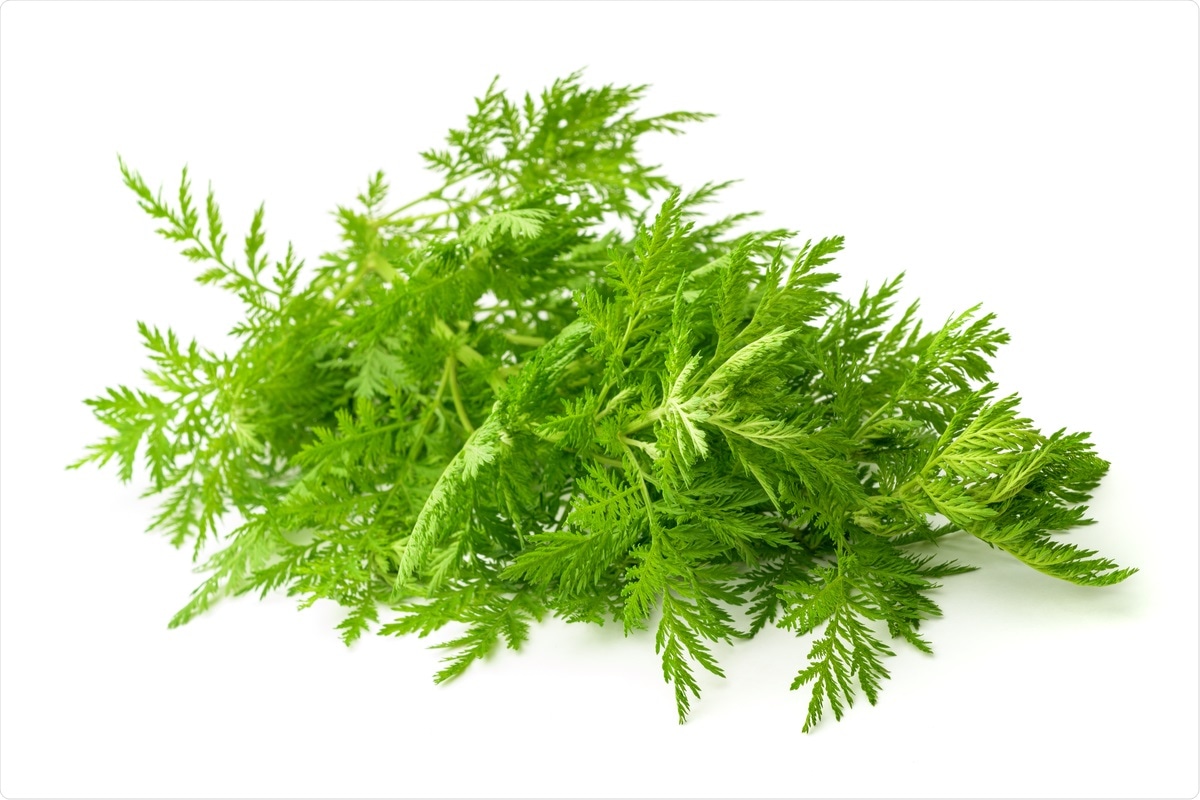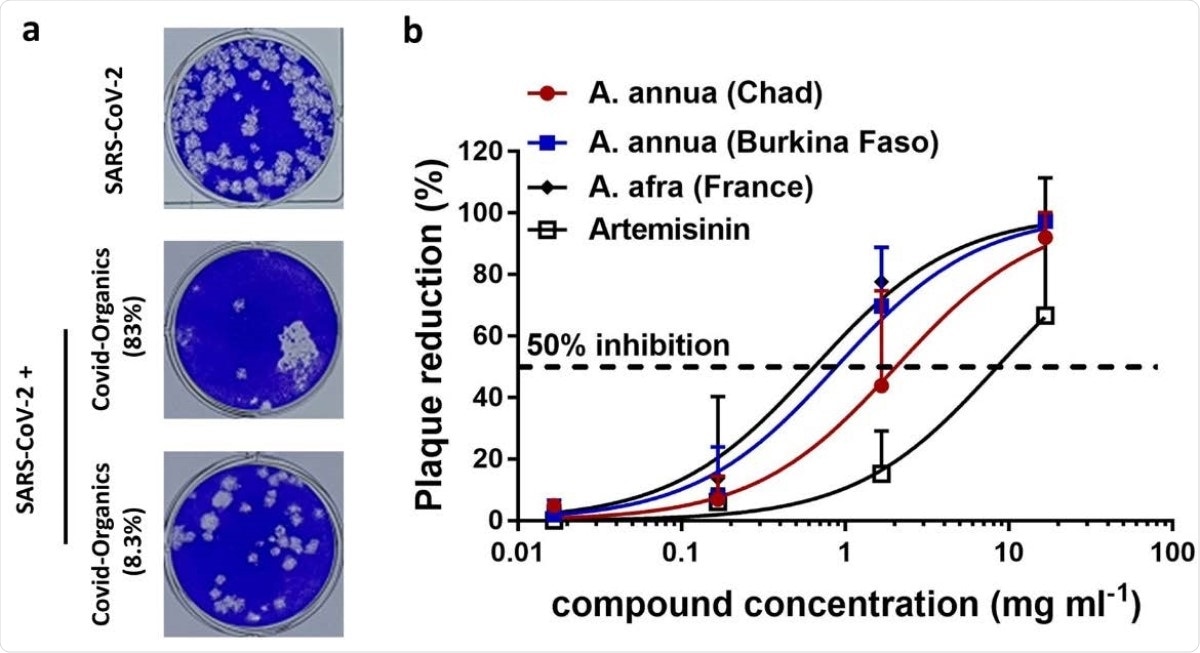Artemisia plant extracts show potential anti-SARS-CoV-2 activity in vitro
A team of scientists from Germany and the USA recently explored the effectiveness of traditional plant medicines in treating severe acute respiratory syndrome coronavirus 2 (SARS-CoV-2) infection. Their findings reveal that various extracts of two medicinal plants, namely Artemisia annua and Artemisia afra, can potentially inhibit SARS-CoV-2 replication in vitro without causing any cytotoxicity. The study is currently available on the bioRxiv* preprint server.

Background
The recent outbreak of coronavirus disease 2019 (COVID-19), caused by the SARS-CoV-2 pathogen, has put a large burden on the healthcare systems of many countries globally. Although about 80% of COVID-19 patients develop only mild symptoms or remain asymptomatic, the disease has claimed more than 2.4 million lives worldwide since its emergence in December 2019. In the initial phase of the pandemic, many antiviral medicines already approved for other diseases have been repurposed to treat critically ill COVID-19 patients. Many vaccines with good efficacy and safety levels have also been developed and approved in record time to curb the pandemic's growth.
Various synthetic derivatives (artesunate) of artemisinin, which is a bioactive natural compound found in Artemisia annua plants, are typically being used as antimalarial medicines. The antimicrobial properties of these bioactive compounds have been recognized clinically. Different extracts of Artemisia annua containing high amount of artemisinin are currently undergoing phase 2 clinical trials to treat COVID-19 patients. Since April 2020 in Madagascar, Covid-Organics drinks containing mainly Artemisia annua extracts are being used as a miracle intervention to treat and prevent COVID-19.
In the current study, the scientists have explored the efficacy of Artemisia annua and Artemisia afra extracts and Covid-Organics in preventing SARS-CoV-2 infection in vitro. Using various animal cell lines, they specifically examined whether these plant products are able to inhibit replication of SARS-CoV-2 and feline coronavirus.
Important observations
Both water and ethanolic extracts of dried leaves of Artemisia annua and Artemisia afra were used in this study. In addition, 500 mg of pure artemisinin and dried form of 50 ml of Covid-Organics were dissolved in dimethyl sulfoxide and tested for activity using various in vitro experimentations.
To determine its antiviral activity, the scientists first incubated feline coronavirus with different concentrations of plant extracts and pure artemisinin solution on a monolayer of feline kidney cells. Using plaque formation assay, they observed that all tested extracts significantly inhibited viral replication in a dose-dependent manner. Specifically, they observed that at a concentration range of 5 – 10 mg/ml, all tested extracts significantly inhibited viral replication, whereas no inhibition was observed at less than 2 mg/ml concentration. Based on these findings, they selected the most potent extracts with the highest antiviral activity for further experimentations on SARS-CoV-2.
A set of experiments conducted using the monkey kidney cell line revealed that the extracts at a concentration of less than 2 mg/ml had potent antiviral activity against SARS-CoV-2. The strongest SARS-CoV-2 inhibitory effects were observed for water extracts of Artemisia annua and Artemisia afra and an ethanolic extract of Artemisia annua. Since Artemisia afra does not contain artemisinin, the scientists believe that other bioactive compounds present in the plant may be responsible for the observed anti-SARS-CoV-2 activity.
Using a separate set of experiments, the scientists estimated that these extracts could induce cytotoxic effects at a concentration range of 10 – 20 mg/ml, which was significantly higher than the concentrations required for antiviral activities. This observation indicates that these extracts can potently inhibit SARS-CoV-2 replication without affecting cell viability.
The preparations made from Covid-Organics drink showed higher antiviral activity against SARS-CoV-2 compared to Feline coronavirus. However, the selectivity index (the window between cytotoxicity and antiviral activity) of Covid-Organics drink was estimated to be 5.2, making it less promising as an antiviral medicine.

Study significance
The study reveals that various extracts of Artemisia annua and Artemisia afra have potential antiviral activities against SARS-CoV-2. However, the scientists mention that further studies are required to check whether appropriate serum levels of Artemisia compounds needed to inhibit SARS-CoV-2 can be achieved in patients. Moreover, further animal and human clinical trials are required to determine whether these in vitro observations can be translated for actual clinical use.